This article was medically reviewed by Luba Lee, FNP-BC, MS. Luba Lee, FNP-BC is a Board-Certified Family Nurse Practitioner (FNP) and educator in Tennessee with over a decade of clinical experience. Luba has certifications in Pediatric Advanced Life Support (PALS), Emergency Medicine, Advanced Cardiac Life Support (ACLS), Team Building, and Critical Care Nursing. She received her Master of Science in Nursing (MSN) from the University of Tennessee in 2006.
There are 9 references cited in this article, which can be found at the bottom of the page.
This article has been viewed 15,467 times.
Antibiotics can play an important role in helping to treat bacterial infections, but they can also put a lot of stress on your gut. Antibiotics can lead to diarrhea, stomach pain, and excessive gas. Some studies even suggest that antibiotics have been linked to developing autoimmune conditions like Crohn's disease and rheumatoid arthritis.[1] Healing your gut from antibiotic treatment can start while you’re still finishing your course through the use of probiotics. After you finish taking antibiotics, adding probiotics to your diet, eating whole foods, and adopting a healthy overall lifestyle can help heal your gut.
Steps
Finishing Your Antibiotics
-
1Talk to your doctor to see if you should finish your full course. Some medical research suggests that you may not always need to finish a full course of antibiotics if your symptoms have stopped. Talk to your doctor to see if it is advisable to finish your full course of antibiotics, or if you can stop after your symptoms stop.[2]
- Be sure to let your doctor know if you have a history of antibiotics causing gastrointestinal distress, including symptoms like bloating, excessive gas, constipation, or diarrhea.
-
2Tell your doctor as soon as possible if antibiotics aren’t helping. In some cases, antibiotics may not treat your problems. Let your doctor know if you have taken a full course of antibiotics and your symptoms still haven’t been resolved, as this may indicate that you didn't get the right treatment or that you have an antibiotic-resistant illness.[3]Advertisement
-
3Take a prebiotic supplement or eat prebiotic-rich foods. Some prebiotics, such as Inulin, can help maintain healthy bacteria in your intestines while you are taking your antibiotics. These are usually easy to find a most health food markets. Simply take the supplement as directed on the packaging, starting the day you start your antibiotic treatment.[4]
- Foods such as raw garlic, onions, under-ripe bananas, dandelion greens, and raw asparagus are all also rich in prebiotics.
Restoring Gut Flora
-
1Take a probiotic supplement. Probiotics encourage the growth of healthy gut flora, and are often encouraged after completing a course of antibiotics. Most over-the-counter probiotic supplements help you restore the balance of bacteria in your intestines. Take the supplement as directed on the probiotic package until you feel your gut flora is back on track.[5]
- Some holistic health professionals recommend a month of probiotic treatment for every week of antibiotic treatment. Others simply advise taking the probiotics until your stool has returned to its pre-antibiotic color and consistency.[6]
- Always talk to your doctor before starting a new supplement.
-
2Eat foods rich in probiotics. In addition to a supplement, adding probiotic-rich foods to your daily diet can help restore your gut health. Most forms of yogurt, including Greek yogurt and plain yogurt, are used for probiotic health. Other probiotic foods include:[7]
- Aged cheese
- Sauerkraut
- Kefir
- Kombucha
- Kimchi
- Pickles that have been fermented in brine
- Miso
-
3Drink bone broth throughout the day. Some homeopathic healthcare specialists use bone broth as a way to heal your stomach lining. Drinking 8-12 oz (about 237-355 ml) throughout the course of a day for 1-2 weeks may help calm your stomach and make digestion easier after you finish a course of antibiotics.
- You can buy bone broth at most health food stores.
- You can also make your own by covering the bones of a leftover organic roast chicken or turkey in water and simmering in a slow cooker along with 15-30 ml of apple cider vinegar for 8-12 hours on a low setting.
Changing Your Lifestyle
-
1Eat a diet rich in whole foods. Whole foods are foods that are free of additives and that have been refined as little as possible. Eating a diet with a lot of whole foods can make digestion easier as your body heals from antibiotics. Try to increase your intake of fresh fruits and vegetables, as well as lean proteins, healthy fats, and whole grains. Avoid foods high in both natural and added sugars.
- Try to avoid prepackaged or ready-made foods as much as possible while your gut heals. These foods are high in added sugar, salt, and food additives, which can all throw off your intestinal balance.
- Instead, focus on foods like whole grains, fresh fruits and vegetables, nuts, legumes, and lean proteins.
-
2Get 30-45 minutes of daily exercise. In addition to diet, regular exercise helps keep your body healthy. Try to get at least half an hour of moderate cardiovascular exercise at least 5 days a week. If you have a regular workout routine, try to stick to it during and after your antibiotic course.[8]
- Simple exercises that you can incorporate into your daily life include a brisk walk or jog, cycling, or even swimming if you have access to a pool.
-
3Relax your mind to reduce stress. Your gut is highly sensitive to whatever is going on in your mind. Try to reduce mental stress as much as possible. Activities such as reading, meditation, and yoga can all help calm your mind and keep your stress from making knots in your stomach.[9]
-
4Sleep for 7-9 hours a night. Sufficient rest is always important, but never more so than when your body is healing. Get plenty of rest every night to help make sure your body has time and energy resources devoted to self-healing. Some tips for a better night's sleep include:[10]
- Going to sleep at the same time every night
- Avoiding screens for at least an hour before bed
- Sleeping in a dark room
- Limiting caffeine for an hour before bed
Expert Q&A
-
QuestionI get an upset stomach when I take some antibiotics. Does that mean I’m allergic?
 Janice Litza, MDDr. Litza is a board certified Family Medicine Physician in Wisconsin. She is a practicing Physician and taught as a Clinical Professor for 13 years, after receiving her MD from the University of Wisconsin-Madison School of Medicine and Public Health in 1998.
Janice Litza, MDDr. Litza is a board certified Family Medicine Physician in Wisconsin. She is a practicing Physician and taught as a Clinical Professor for 13 years, after receiving her MD from the University of Wisconsin-Madison School of Medicine and Public Health in 1998.
Board Certified Family Medicine Physician Unlikely, it is more of a side effect of certain antibiotics. Check with your doctor or pharmacist about ways to take the medicine that might reduce upset stomach and I also usually recommend a probiotic or at least yogurt while taking and immediately after antibiotics to keep your gut bacteria healthy.
Unlikely, it is more of a side effect of certain antibiotics. Check with your doctor or pharmacist about ways to take the medicine that might reduce upset stomach and I also usually recommend a probiotic or at least yogurt while taking and immediately after antibiotics to keep your gut bacteria healthy.
References
- ↑ https://www.ncbi.nlm.nih.gov/pmc/articles/PMC4036413/
- ↑ https://www.cnbc.com/2017/07/27/medical-advice-telling-patients-to-complete-antibiotics-course-is-wrong-study-says.html
- ↑ https://familydoctor.org/antibiotic-resistance/
- ↑ https://www.ncbi.nlm.nih.gov/pmc/articles/PMC4488797/
- ↑ https://www.saga.co.uk/magazine/health-wellbeing/treatments/antibiotics-gut-bacteria
- ↑ https://www.holisticprimarycare.net/topics/topics-a-g/digestive-health/1862-how-to-restore-gut-flora-after-antibiotics.html
- ↑ http://www.health.com/health/gallery/0,,20942743,00.html#how-to-buy-bugs-in-a-bottle-0
- ↑ https://health.usnews.com/wellness/articles/2017-06-26/antibiotics-screwed-up-my-gut-now-what
- ↑ https://www.sciencedirect.com/topics/medicine-and-dentistry/dysbiosis
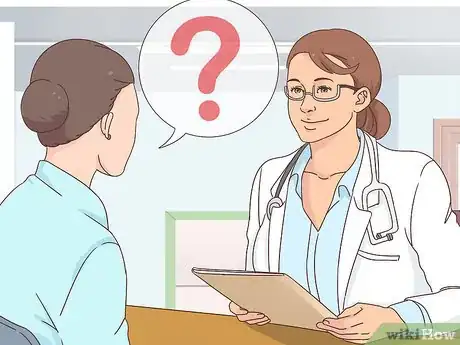
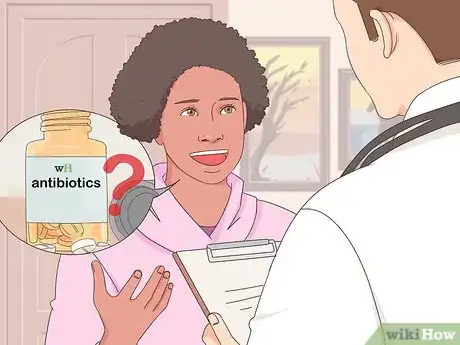
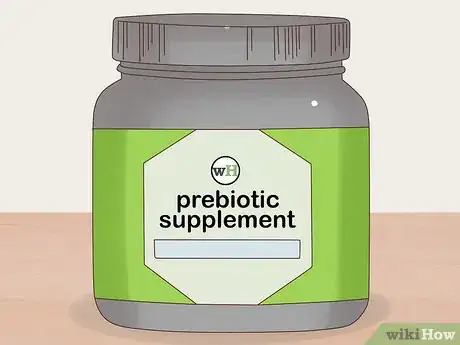
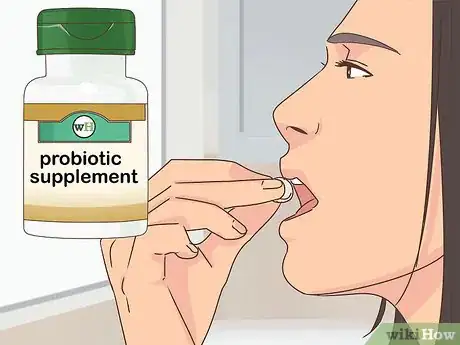


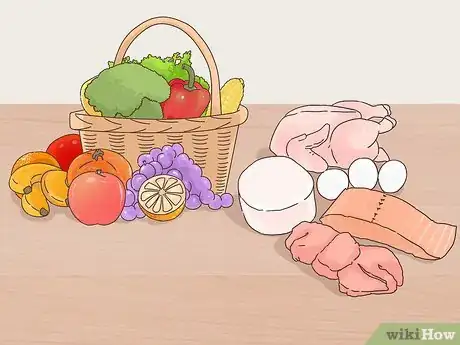


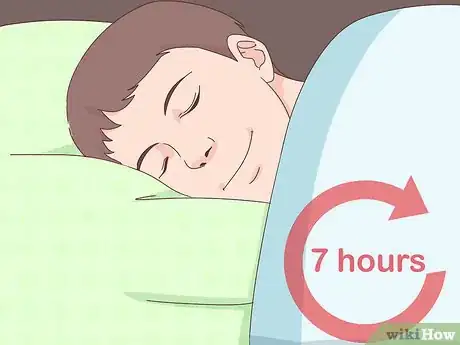



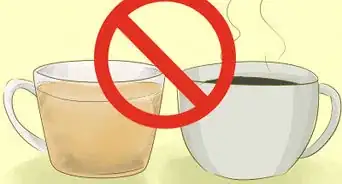
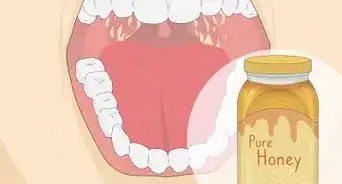












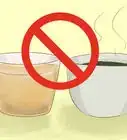




































Medical Disclaimer
The content of this article is not intended to be a substitute for professional medical advice, examination, diagnosis, or treatment. You should always contact your doctor or other qualified healthcare professional before starting, changing, or stopping any kind of health treatment.
Read More...